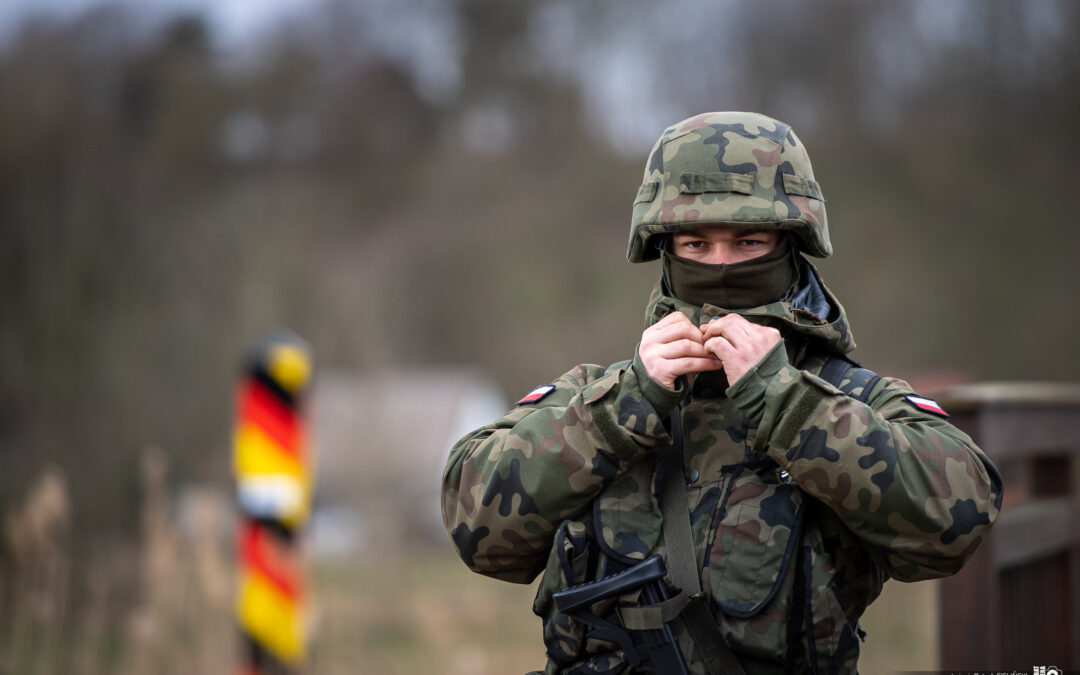Keep our news free from ads and paywalls by making a donation to support our work!

Notes from Poland is run by a small editorial team and is published by an independent, non-profit foundation that is funded through donations from our readers. We cannot do what we do without your support.
Prime Minister Donald Tusk has announced that it is “very likely” Poland will soon introduce “partial controls” on its border with Germany in response to Berlin sending back migrants who have crossed illegally.
In a speech to parliament ahead of yesterday’s vote of confidence in his government, Tusk also revealed that he is seeking support from other European Union countries to restrict or end visa-free access for Georgians, who the Polish government has blamed for a wave of crime.
💬 Premier @DonaldTusk w #SejmRP: Nie zawaham się podjąć decyzji o wprowadzeniu czasowej kontroli także na granicy z Niemcami. Jest bardzo prawdopodobne, że jeszcze tego lata takie częściowe kontrole zostaną wprowadzone. #ZrobioneDlaPolski
— Kancelaria Premiera (@PremierRP) June 11, 2025
In normal times, there are no checks on the border between Poland and Germany since both are in the European Schengen free-travel area. However, in 2023, Germany reintroduced controls on its side of the border in an effort to prevent the unlawful entry of migrants.
That has prompted criticism from Poland, both due to the added burden it places on people crossing the border but also because of the thousands of migrants Germany has sent back over the border because they did not have the right to enter.
Poland’s main opposition party, the national-conservative Law and Justice (PiS), has organised protests against Germany’s migrant returns. It accuses Tusk’s government of being too soft on the issue. However, such returns also took place when PiS was in power.
Speaking to parliament on Wednesday, Tusk said that he had “warned the new [German] government of Chancellor Friedrich Merz that, from the Polish side, we will very critically and very thoroughly check every attempt to send any migrant to Poland”.
“I informed our neighbours, not only the Germans, but also other countries with which we border, that, if the situation on the border, the pressure, escalates, I will not hesitate to make a decision to introduce temporary controls,” added Tusk, quoted by Polsat News.
“It is very likely that we will introduce such partial controls on the border with Germany this summer,” he declared, though without providing further details of what they would entail or exactly when they may be introduced.
Tusk acknowledged that any such measure would cause difficulties for Poles living around the border, especially the many who are resident on one side and work on the other. He said that the government would do its best to minimise disruption for them.
Official data show that, in the space of 14 months, Germany has returned to Poland over 11,000 migrants who unlawfully crossed the Polish-German border
The issue of such returns has become a hot topic during Poland's ongoing presidential election campaign https://t.co/RSXxg03JWZ
— Notes from Poland 🇵🇱 (@notesfrompoland) April 11, 2025
In March this year, Tusk announced that Poland would stop complying with the EU’s Dublin Regulation that allows asylum seekers to be returned to the member state in which they first applied for protection. However, so far his government has not done so.
During his speech to parliament on Wednesday, Tusk also revealed that he was trying to “build the necessary majority” among EU member states to limit or even entirely suspend visa-free travel to the bloc for Georgians.
While “one third of Georgians would very much like to share our values…I am a strong advocate of limiting visa-free travel with countries that do not comply with standards”, said the prime minister, quoted by Radio Zet.
Earlier this year, Tusk’s government launched a clampdown on what it said was a growing wave of “imported crime” committed by immigrants, in particular from Georgia.
The government says that Poland is experiencing a growing wave of crime committed by immigrants and has taken tough action in response, including mass arrests and deportations.
But official data show that the story is not so simple, writes @Gosia_Tomczak https://t.co/smHyp6lkyG
— Notes from Poland 🇵🇱 (@notesfrompoland) April 16, 2025

Notes from Poland is run by a small editorial team and published by an independent, non-profit foundation that is funded through donations from our readers. We cannot do what we do without your support.
Main image credit: Combat Camera Poland/Flickr (under CC BY-NC-ND 2.0)

Daniel Tilles is editor-in-chief of Notes from Poland. He has written on Polish affairs for a wide range of publications, including Foreign Policy, POLITICO Europe, EUobserver and Dziennik Gazeta Prawna.



















